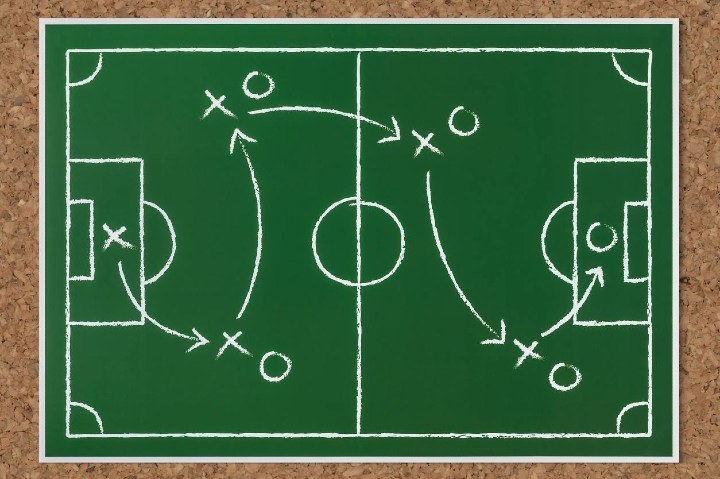“Football Coaching Strategies in Argentina: A Deep Dive into Passion, Tactics, and Innovation
Related Articles Football Coaching Strategies in Argentina: A Deep Dive into Passion, Tactics, and Innovation
Football Coaching Strategies in Argentina: A Deep Dive into Passion, Tactics, and Innovation

Argentina, a nation synonymous with footballing brilliance, boasts a rich history of producing world-class players, iconic moments, and, crucially, innovative coaching philosophies. The Argentine approach to football coaching is a complex blend of passion, tactical acumen, and an unwavering belief in the nation’s unique footballing identity. This article delves into the multifaceted coaching strategies employed in Argentina, exploring the historical influences, key tactical approaches, the emphasis on youth development, and the ongoing evolution of the game within the country.
Historical Context: A Legacy of Innovation
To understand the current coaching landscape in Argentina, it’s essential to acknowledge its historical roots. The early days of Argentine football were heavily influenced by British coaches, who introduced the game and its fundamental principles. However, Argentine football quickly developed its own distinct character, characterized by a more fluid, creative, and technically driven style.
One of the most influential figures in Argentine football history is Carlos Bilardo. His pragmatic and results-oriented approach, which led Argentina to victory in the 1986 World Cup, emphasized tactical discipline, physical conditioning, and a strong defensive foundation. Bilardo’s 3-5-2 formation became a hallmark of Argentine football during his tenure.
In contrast, César Luis Menotti, who led Argentina to their first World Cup triumph in 1978, advocated for a more aesthetically pleasing and attacking style of play. Menotti’s philosophy, known as "El Flaco" (The Thin One), emphasized possession-based football, creative midfielders, and a commitment to entertaining the fans.
These two contrasting philosophies, Bilardismo and Menottismo, have shaped the ongoing debate within Argentine football about the ideal approach to the game. While Bilardo’s pragmatism prioritized results, Menotti’s idealism championed a more artistic and expressive style.
Key Tactical Approaches: Adaptability and Flair
Argentine coaches are renowned for their tactical adaptability and their ability to tailor their strategies to the strengths of their players and the specific challenges of each match. While there is no single "Argentine" style of play, several common tactical approaches can be identified:
-
Emphasis on Possession: Argentine coaches generally prioritize possession-based football, aiming to control the tempo of the game and dictate the flow of play. This approach requires technically gifted midfielders who can pass accurately, maintain possession under pressure, and create attacking opportunities.
-
Attacking Full-Backs: Argentine football has a long tradition of utilizing attacking full-backs who can contribute both defensively and offensively. These players are expected to provide width in attack, deliver crosses into the box, and track back to defend against opposing wingers.
-
Creative Midfielders: Argentine coaches place a high value on creative midfielders who can unlock defenses with their vision, passing range, and dribbling skills. These players are often given the freedom to roam and express themselves on the pitch, creating moments of magic and inspiration.
-
Flexible Formations: Argentine coaches are not afraid to experiment with different formations, depending on the strengths of their players and the tactical requirements of the match. Common formations include the 4-3-3, 4-4-2, and 3-5-2, but coaches are always willing to adapt and innovate.
-
High Pressing: In recent years, Argentine coaches have increasingly adopted a high-pressing style of play, aiming to win back possession in the opponent’s half and create scoring opportunities. This approach requires a high level of fitness, coordination, and tactical discipline.

Youth Development: Nurturing Future Stars
Argentina has a long and proud tradition of developing world-class players through its youth academies. Argentine coaches place a strong emphasis on technical skills, tactical awareness, and mental toughness from a young age.
Youth academies in Argentina typically follow a holistic approach to player development, focusing not only on footballing skills but also on education, character development, and social responsibility. Young players are taught the importance of teamwork, discipline, and respect for their opponents.
Argentine youth coaches also encourage creativity and individual expression, allowing young players to develop their own unique style of play. They believe that it is important to nurture the individual talents of each player while also instilling a strong sense of team spirit.
The Influence of Marcelo Bielsa
No discussion of Argentine coaching strategies would be complete without mentioning Marcelo Bielsa. Bielsa, often referred to as "El Loco" (The Crazy One), is one of the most influential coaches in modern football. His high-intensity, attacking style of play has inspired a generation of coaches around the world.
Bielsa’s coaching philosophy is based on the principles of relentless pressing, vertical passing, and constant movement. He demands a high level of fitness and tactical discipline from his players, and he is known for his meticulous preparation and attention to detail.
Bielsa’s influence can be seen in the coaching styles of many successful Argentine coaches, including Mauricio Pochettino, Diego Simeone, and Jorge Sampaoli. These coaches have all adopted elements of Bielsa’s high-intensity, attacking approach to the game.
The Ongoing Evolution of Argentine Coaching
Argentine football coaching is constantly evolving, as coaches adapt to new trends and challenges in the game. In recent years, there has been a growing emphasis on data analytics, sports science, and player psychology.
Argentine coaches are increasingly using data analytics to gain insights into player performance, identify areas for improvement, and develop more effective game plans. They are also working closely with sports scientists to optimize player fitness, prevent injuries, and improve recovery times.
In addition, Argentine coaches are paying more attention to the psychological aspects of the game, recognizing the importance of mental toughness, self-confidence, and team cohesion. They are using techniques such as visualization, meditation, and team-building exercises to help their players perform at their best under pressure.
Challenges and Opportunities
Despite its rich history and tradition of innovation, Argentine football coaching faces several challenges. One of the biggest challenges is the lack of financial resources available to many clubs, particularly at the youth level. This can make it difficult to attract and retain talented coaches and to provide young players with the best possible training facilities.
Another challenge is the prevalence of corruption and mismanagement within Argentine football. This can create an unstable environment for coaches and players, and it can undermine the integrity of the game.
However, Argentine football coaching also has many opportunities. The country has a wealth of talented players, a passionate fan base, and a strong footballing culture. With the right investment and leadership, Argentine football can continue to produce world-class players and innovative coaching strategies for many years to come.
Conclusion
Football coaching in Argentina is a complex and fascinating subject, shaped by historical influences, tactical innovations, and a deep-seated passion for the game. Argentine coaches are renowned for their adaptability, creativity, and their ability to nurture young talent. While challenges remain, the future of Argentine football coaching looks bright, with a new generation of coaches emerging who are committed to pushing the boundaries of the game and upholding the nation’s proud footballing tradition. From the foundational debates of Bilardismo vs. Menottismo to the modern influence of Bielsa, Argentine coaching continues to evolve, adapt, and inspire the global footballing community. The emphasis on possession, creative midfielders, and attacking full-backs, combined with a growing focus on data analytics and sports science, ensures that Argentina remains at the forefront of footballing innovation. The blend of passion, tactics, and innovation ensures that Argentina will continue to be a major force in world football for years to come.
